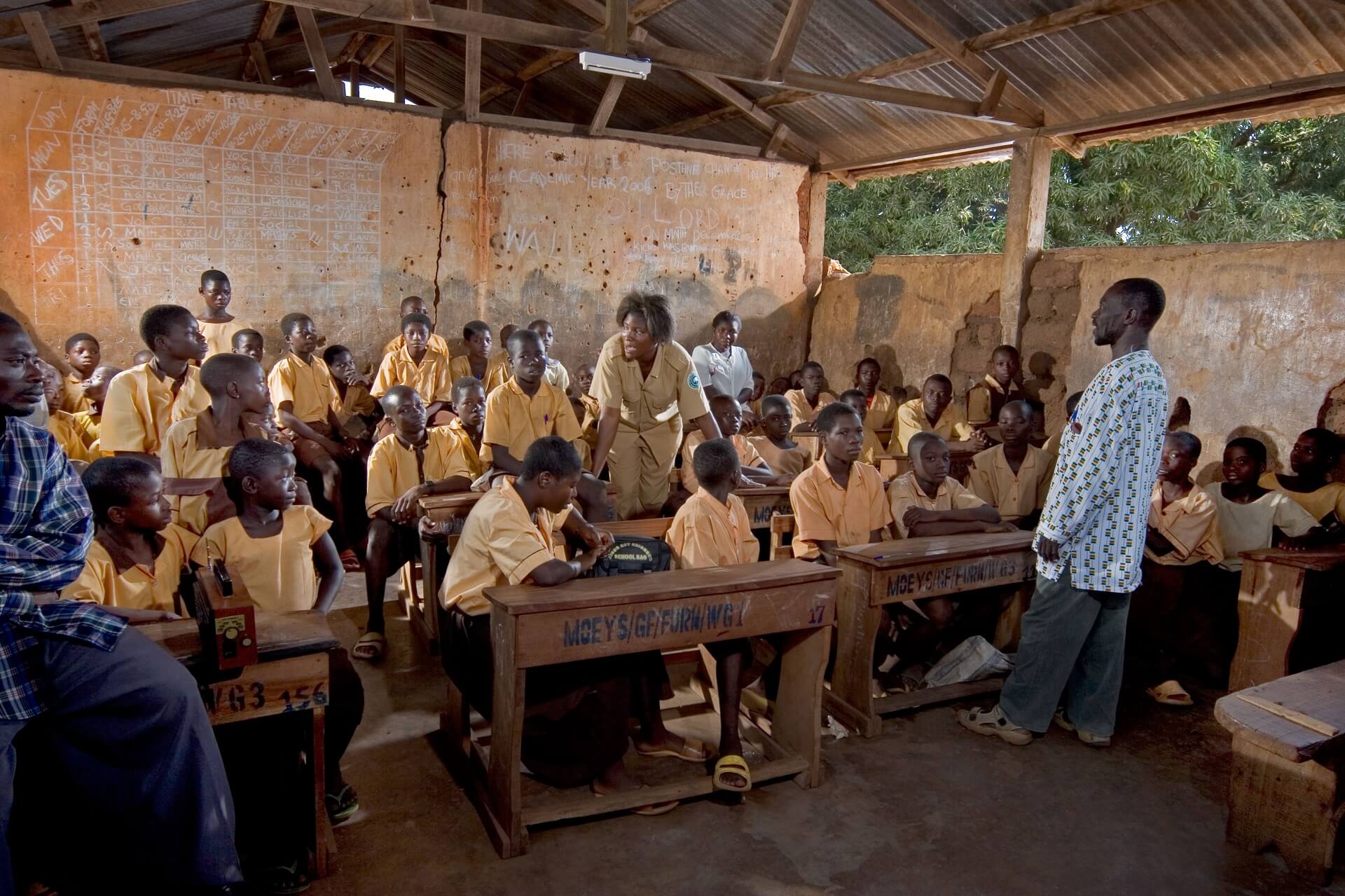Education
Our Contribution To Education
To better the social and economic status of people living in underdeveloped communities, Social Justice for Poverty Alleviation in Our Communities has impacted the education sector by:
Student scholarships to University (Villages, poor urban areas):
Problem: Many students in poorer communities score well enough to get into university, but cannot attend because they are too poor and cannot afford tuition, books, transport, housing, etc. In addition, they have no-one to counsel them on the process for getting into university.
Meet “Mary” who lives in a small town 45 minutes from Accra. She receives good enough scores to go to university but she has no money to get the forms to apply (approximately 35 dollars per application per subject) nor does she know how to submit the forms because schools do not walk you through the process. Getting the forms, finding the funds, then heading to a Bank in the city to pay for the forms means spending more money. Even when she gets to fill them she does not know the deadlines. Without a phone or a way to contact the university, she waits, hoping to hear from them. Weeks go by and she does not hear from them. Possibly she’s missed the dates. In any case she doesn’t have the tuition money so she decides to work for a year as a waiter and tries again. After a year of working as a waitress, she still does not have the money, but she decides to try again because someone has volunteered to pay for the forms for her. She pays for the forms and resubmits on time and to the right place, but then the university writes to tells her she can no longer be admitted, because she did not come the year before- the year she graduated. This is by letter, which takes ages to arrive and when she gets the letter it is too late to try to find transport money to chase down the appropriate office in a city that she does not know to ask more questions. She gives up. She is still waitressing and will probably end up married or with children in a couple of years.
Solution:
Identify bright students who score well but cannot afford tuition and associated fees.
Recruit one person as liaison to follow up with students who do well academically but live outside the city. This person will go to the locations, talk with the students, help process their paperwork and generally counsel them and their families. This type of follow up is done by all the private schools but not in most public schools. Poor children outside of the city face impossible hurdles trying to get to university.
Future: By 2022, work with poor rural and urban schools outside of the capital to identify potential bright candidates (who meet the poverty criteria) who are in their final year of senior secondary school. By 2023 support and track 5 students (3 female, 2 male) if they have the requisite score to gain admittance to university.
Libraries in underserved communities (books, toys and games)
Poor children in villages and urban areas have no access to libraries. There is one large public library in the capital of Accra and a few small libraries set up by NGOs but mostly in neighborhoods within the city of Accra. Outside of the city, there are no libraries in villages, or small towns.
To date: 1n 2020, we gave some financial support to the work started by two adolescents to establish a library in Kokrobite, a small fishing community. The Library was established in the grounds of a local pastor, who donated one of the rooms in his outdoor building to use as a library. It was a good location because many children visited there after church. Boxes of donations (books and lego kits, and other construction toys) were shipped to Ghana from the USA and the first Library in Kokrobite was started. The library attracts up to 40 or more children at a time. Children read children’s fiction (age 5-15) as well as educational books (science, math etc), construct legos, and are also given snacks. Children are allowed to borrow books and return them.
In 2024 we aim to work with the same team using their model to open another Library in a poor village or small town.





